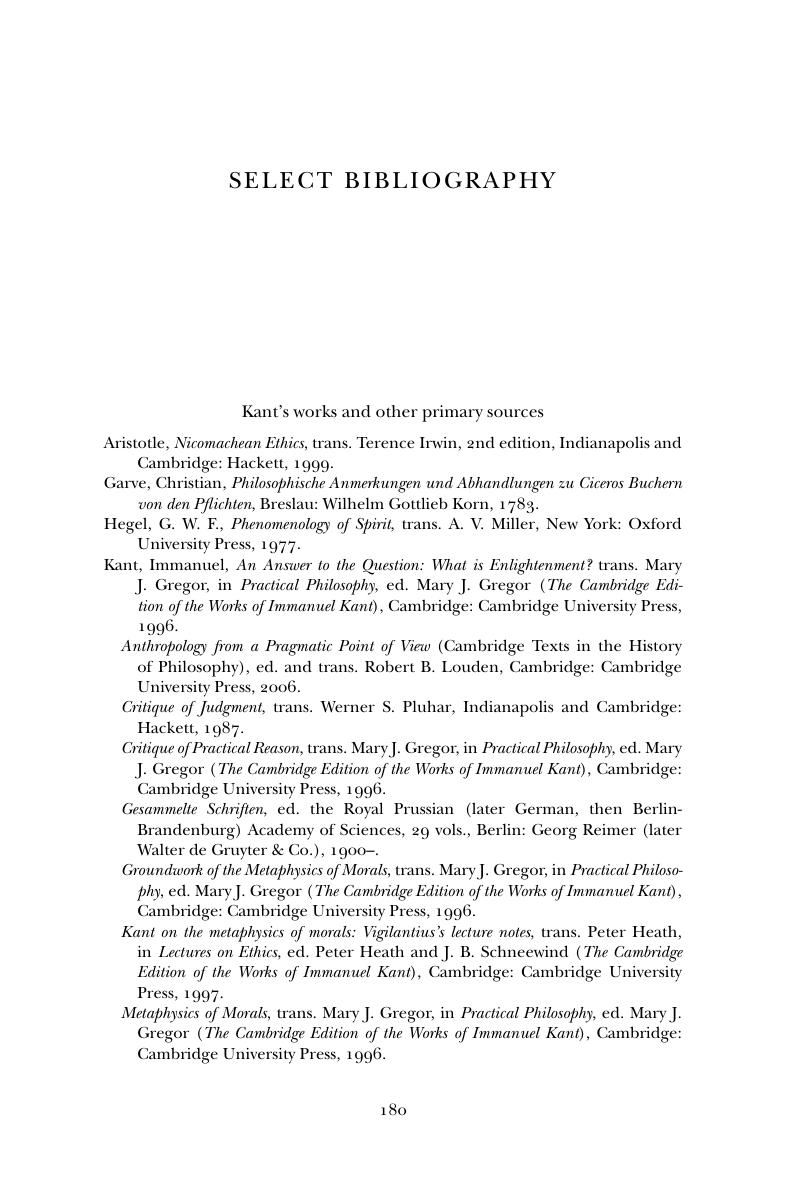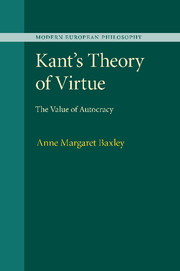Book contents
- Frontmatter
- Contents
- Acknowledgments
- Abbreviations and translations
- Introduction
- 1 The good will, moral worth, and duty: concerns about Kant's rationalist moral psychology
- 2 Kant's conception of virtue and the autocracy of pure practical reason
- 3 Virtue, human nature, and moral health: Kant's dispute with Schiller
- 4 The moral psychology of Kantian virtue
- Conclusion: Kant's considered account of moral character and the good will reconsidered
- Select bibliography
- Index
- References
Select bibliography
Published online by Cambridge University Press: 06 December 2010
- Frontmatter
- Contents
- Acknowledgments
- Abbreviations and translations
- Introduction
- 1 The good will, moral worth, and duty: concerns about Kant's rationalist moral psychology
- 2 Kant's conception of virtue and the autocracy of pure practical reason
- 3 Virtue, human nature, and moral health: Kant's dispute with Schiller
- 4 The moral psychology of Kantian virtue
- Conclusion: Kant's considered account of moral character and the good will reconsidered
- Select bibliography
- Index
- References
Summary

- Type
- Chapter
- Information
- Kant's Theory of VirtueThe Value of Autocracy, pp. 180 - 186Publisher: Cambridge University PressPrint publication year: 2010



